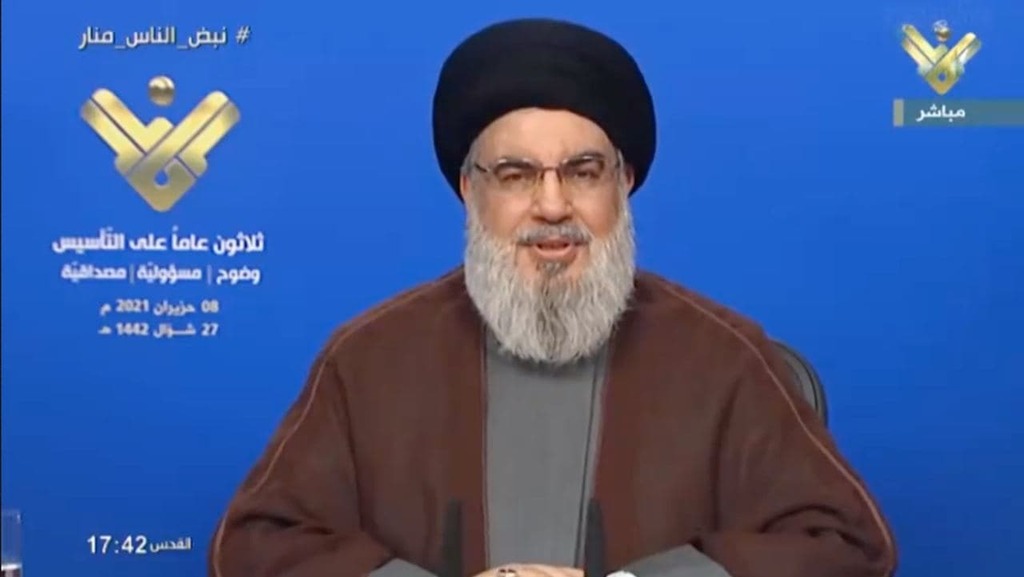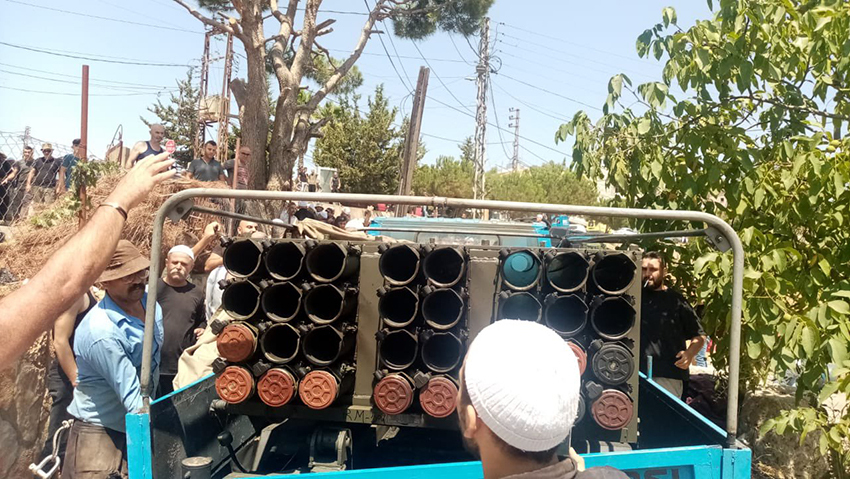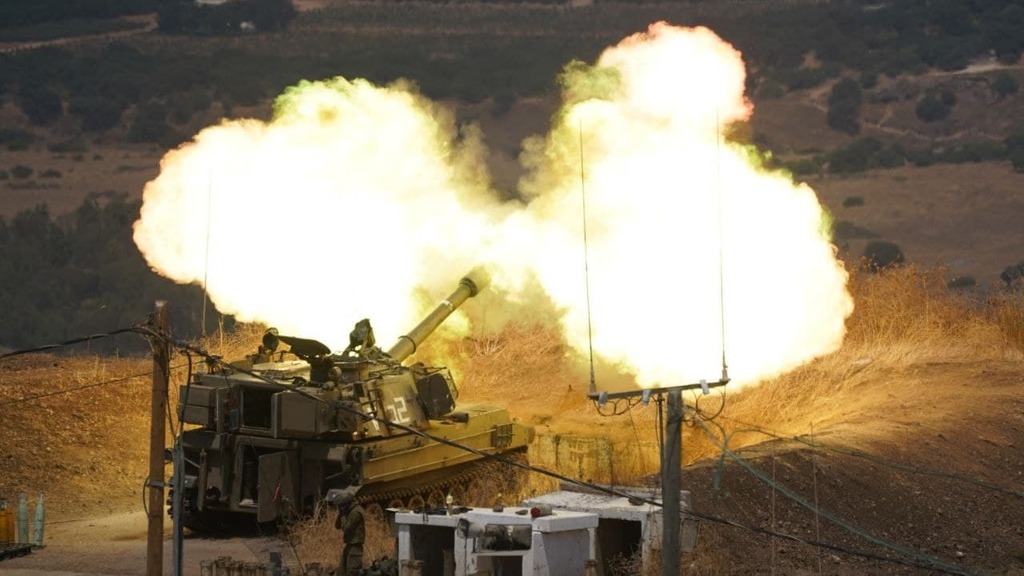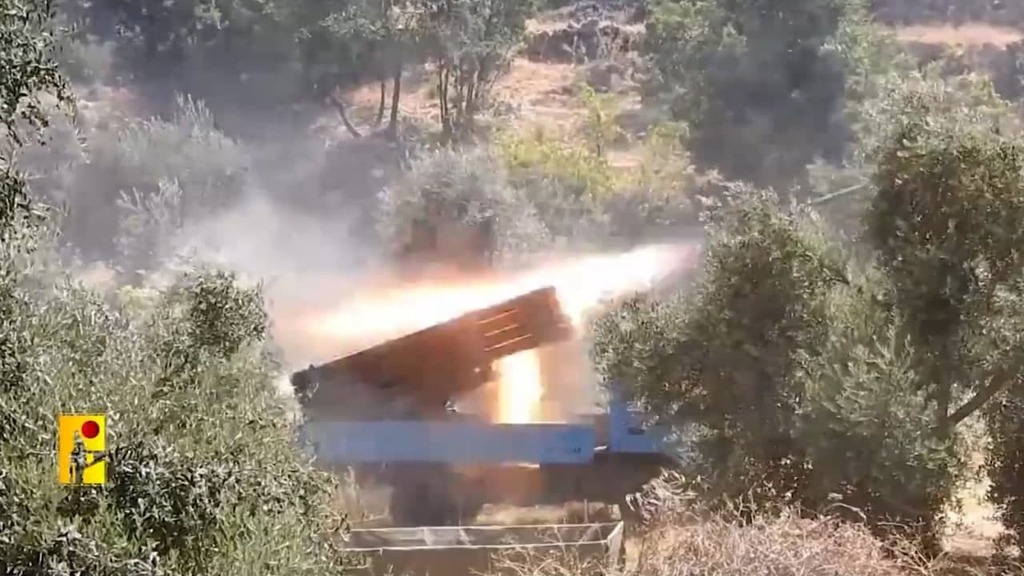Getting your Trinity Audio player ready...
A day after Hezbollah fired a barrage of rockets from Lebanon at open areas in northern Israel, the head of the Iranian-backed terror group warned Saturday that it could escalate its cross-border actions against Israel in the future
Hassan Nasrallah said the group had chosen to respond Friday to IAF strikes in southern Lebanon by firing at unpopulated areas. The Israeli airstrikes in the early hours of Thursday came a day after Palestinian groups in southern Lebanon launched a salvo of rockets across the border.
Two of the rockets fired Wednesday landed close to the city of Kiryat Shmona, igniting brush fires but causing no injuries.
Israel said Friday after Hezbollah fired some 20 rockets - many of which were intercepted by the Iron Dome missile defense system - that it had no desire for a further escalation on the border.
In a speech commemorating the end of the 2006 Second Lebanon War with Israel, Nasrallah said Saturday that the Israeli airstrikes were a "dangerous development" that had not been seen since the end of the 33-day conflict. The airstrikes were the first of their kind for almost a decade.
Israel bombed targets in southern Lebanon early on Thursday, after rocket fire by Palestinian groups hit the Galilee on Wednesday. The Palestinian attack, on which Hezbollah has not commented, also drew retaliatory Israeli artillery fire.
4 View gallery


Hezbollah chief Hassan Nasrallah delivers a speech on the anniversary of the 2006 Second Lebanon War on Saturday
The Hezbollah chief said the group wanted to show that any Israeli air strike would be responded to in "the appropriate and proportional way."
"We chose... open land in the Shebaa Farms area to send a message, and to take a step, and we can later escalate by another step," Nasrallah said.
Nasrallah said that Hezbollah's options included a response on any open land in "northern occupied Palestine," namely the Galilee or the Golan Heights.
Hsaid that Hezbollah had on Friday fired 20 rockets toward open fields only, as the Israeli airstrikes on Thursday had themselves hit open fields.
4 View gallery


Residents of a Druze village in southern Lebanon apparently trying to stop Hezbollah firing rockets at Israel from their community on Friday
Videos posted on social media following the Hezbollah rocket fire appeared to show residents of a Druze village in southern Lebanon objecting to the use of their community for the launches and surrounding a truck carrying the munitions.
Regional tensions were running high following an alleged Iranian attack on an Israeli-managed oil tanker in the Gulf last week in which two British and Romanian crew members were killed. Tehran denied western accusations of involvement in the incident.
Lebanon is also going through the worst economic and financial crisis in its modern history, which the World Bank describes as among the worst the world has witnessed since the mid 1800s.
4 View gallery


IDF troops fire artillery shells at southern Lebanon after Hezbollah rockets were launched at the Galilee and the Golan Heights on Friday
(Photo: Efi Sharir)
But, Nasrallah said that would not impact on the group's future actions against Israel.
"Don't miscalculate by saying that Hezbollah is busy with Lebanon's problems," he said.
"We always used to say that we are not looking for war and we don't want war but we are ready for it."
Israel believes Hezbollah possesses over 130,000 rockets and missiles capable of striking anywhere in the country. In recent years, Jerusalem had also expressed concerns that the group was trying to import or develop an arsenal of precision-guided missiles.


